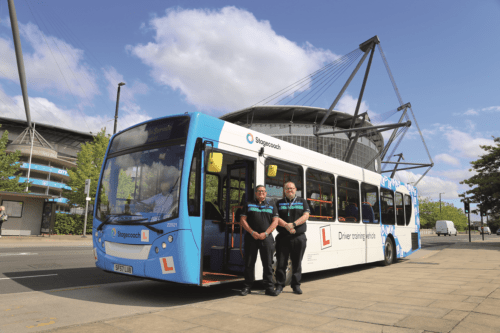
Jonathan Welch pays a visit to Stagecoach Manchester to find out about its comprehensive driver training regime
Training. It’s a word that usually strikes dread into those of us who have been in the industry for any length of time, as in the majority of cases, it means a driver CPC course. And we all know that they can sometimes end up being a little on the dry side. From that perspective, it’s easy to forget how many of us started our careers in the world of coaches and buses; the driving test.
Whilst ongoing professional training and development is important for drivers and other staff alike, the importance of that initial period of training is often overlooked. I paid a visit to Stagecoach in Manchester to meet some of the training academy team based at its Hyde Road depot and find out how it tackles driver recruitment, initial and ongoing training.
Stagecoach has 22 driving instructors based in Manchester, who are responsible for everything from driver training, CPC courses and ongoing overt and covert driver assessments and remedial training, which can be targeted following an incident or at random. I was introduced to training instructors Mike McGann and Craig Spivey who showed me around the depot’s facilities and training fleet.
Initial impressions
Thinking back to my own training days, I saw a lot of similarities with the instructors at Stagecoach Manchester. The old saying of first impressions count is often true, and as soon as I was introduced to Mike and Craig, I knew this was going to be not just an informative visit, but a fun one. After a quick introductory chat with some of the team in the office and the obligatory group photo, Mike and Craig showed me around the facilities while we chatted about the day-to-day operations of the driving school.
[…]By subscribing you will benefit from:
- Operator & Supplier Profiles
- Face-to-Face Interviews
- Lastest News
- Test Drives and Reviews
- Legal Updates
- Route Focus
- Industry Insider Opinions
- Passenger Perspective
- Vehicle Launches
- and much more!


